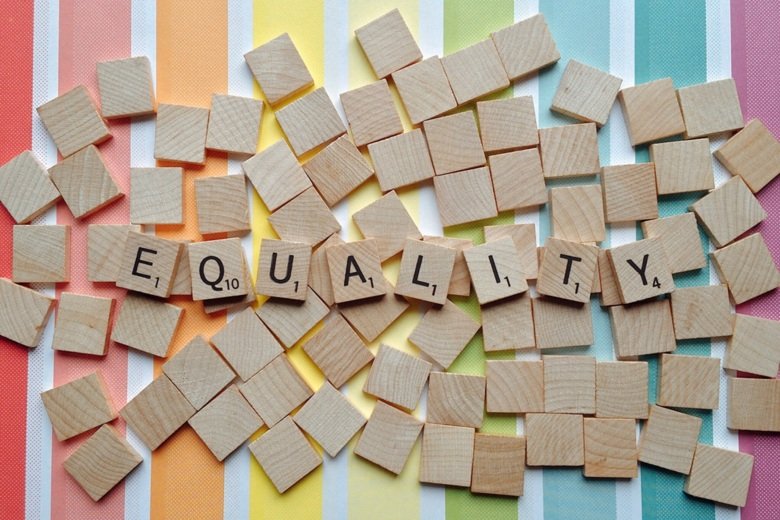
Health inequalities and minority stress
The overarching goal of the research in our group is to generate greater knowledge concerning factors influencing the health and well-being of vulnerable populations, and to develop easily disseminated interventions to improve resilience in these groups. In this research, we try to identify psychological social, and biological determinants of health and health-related behaviors, and to study the effects of internet-based psychological treatments.
During the past several years, our main focus has been on studies of how psychological, social, biological, and contextual factors influence the health of lesbian, gay, bisexual, transgender, and queer (LGBTQ) individuals. Richard Bränström’s research group is influenced by an intersectional perspective and applies theories and methods from a number of research fields such as psychology, public health sciences, and social-epidemiology to understand the effect of stigma and discrimination on inequalities in health.
In the research group a number of studies are ongoing testing the efficacy of internet-based psychological interventions to increase resilience and decrease psychological distress both among different patient groups, and among sexual minority adolescents and young adults.
Research themes
- Psychological, social, biological, and contextual determinants of health in LGBT-populations
- The effects of LGBT-affirmative psychological interventions on mental health outcomes
- Stress-reduction interventions in populations at increased risk of poor mental health
- Biopsychosocial models to promote health behavior change and prevention
Research grants
The research is supported by grants from: The Swedish Research Council (Vetenskapsrådet), The Swedish Research Council for Health, Working Life and Wellfare (Forte), and US National Institutes of Health (NIH).
Public communication of science
Unga hbtq-personers hälsa och livsvillkor - Frukostseminarium arrangerat av Forskningsrådet för hälsa, arbetsliv och välfärd (Forte)
The Mental Health and Wellbeing of LGBT Individuals in Sweden - Open seminar: International Day Against Homophobia, transphobia, and Biphobia (IDAHOT) organized by the Karolinska Institutet
Selected publications
Bränström R, Pachankis JE. Sexual Orientation Differences in age of First Treatment for a Mental Health Diagnosis: A Population-based Study of Childhood and Adolescence. Journal of the American Academy of Child & Adolescent Psychiatry. Available online 2 Aug 2024. PMID: 39098721 DOI: https://doi.org/10.1016/j.jaac.2024.07.916
Bränström R, Hatzenbuehler ML, Lattanner MR, Hollinsaid NL, McDade TW, Pachankis JE. Threats to social safety and neuro-inflammatory mechanisms underlying sexual orientation disparities in depression symptom severity: A prospective cohort study of young adults. Brain, Behavior, and Immunity. 2024, 119: 211-219. DOI: https://doi.org/10.1016/j.bbi.2024.03.036
Pachankis JE, Hatzenbuehler ML, Klein DN, Bränström R. The role of shame in the sexual orientation disparity in mental health: A prospective population-based study of multimodal emotional reactions to stigma. Clinical Psychological Science. 2024, 12.3: 486-504. PMID: 38938414; DOI: https://doi.org/10.1177/21677026231177714
Bränström R, Fellman D, Pachankis JE. Age-varying sexual orientation disparities in mental health, treatment utilization, and social stress: A population-based study. Psychology of Sexual Orientation and Gender Diversity. 2022. DOI: https://doi.org/10.1037/sgd0000572
Bränström R, Pachankis JE, Jin F, Klein DN, Hatzenbuehler ML. Self-Schemas and Information Processing Biases as Mechanisms Underlying Sexual Orientation Disparities in Depressive Symptoms: Results from a Longitudinal, Population-Based Study. Journal of Psychopathology and Clinical Science. 2023, 132.6: 681. PMID: 37326561; DOI: https://doi.org/10.1037/abn0000823
Bränström R, Pachankis JE. Structural stigma and 7-year improvement in life satisfaction among diverse groups of sexual minority individuals: A repeated cross-sectional study across 28 countries. Social Problems. 2023, spad029. DOI: https://doi.org/10.1093/socpro/spad029
Falck F, Bränström R. The significance of structural stigma towards transgender people in health care encounters across Europe: Health care access, gender identity disclosure, and discrimination in health care as a function of national legislation and public attitudes. BMC Public Health. 2023;23:1031. PMID: 37259082; DOI: https://doi.org/10.1186/s12889-023-15856-9
Bränström R, Fellman D, & Pachankis JE. (2023). Structural stigma and sexual minority victimization across 28 countries: the moderating role of gender, gender nonconformity, and socioeconomic status. Journal of interpersonal violence. 2023;38(3-4):3563-85. PMID: 35942575; DOI: https://doi.org/10.1177/08862605221108087
Bränström R, Stormbom I, Bergendal M, Pachankis JE. Transgender-based disparities in suicidality: A population-based study of key predictions from four theoretical models. Suicide Life Threat Behav. 2022, 52.3: 401-412. PMID: 35067978 DOI: https://doi.org/10.1111/sltb.12830
Pachankis JE, Mahon CP, Jackson SD, Fetzner BK, & Bränström R. (2020). Sexual orientation concealment and mental health: A conceptual and meta-analytic review. Psychological Bulletin. 2020, 146.10: 831. DOI: https://doi.org/10.1037/bul0000271
See Richard Bränström's personal page for a full list of publications.
